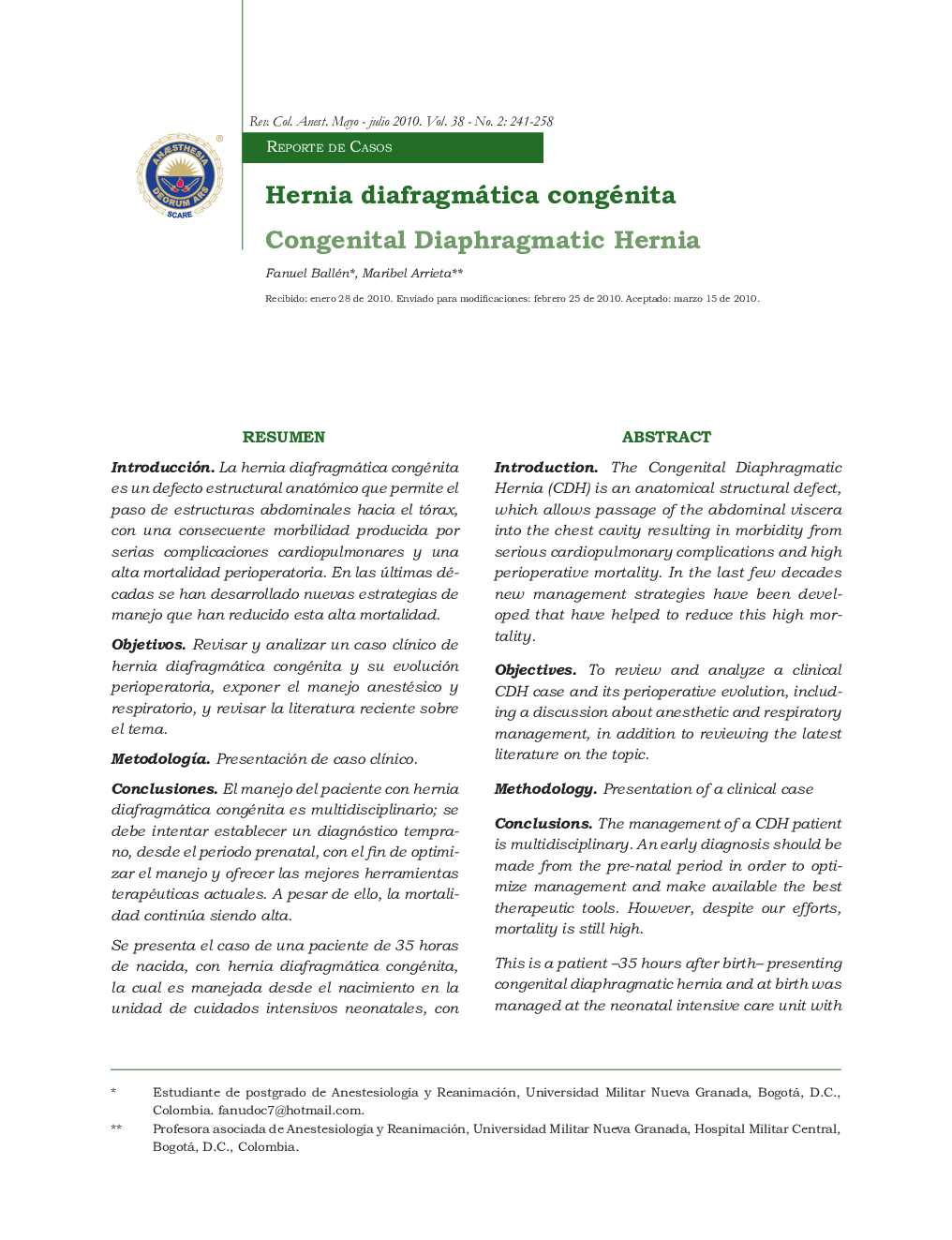| Article ID | Journal | Published Year | Pages | File Type |
|---|---|---|---|---|
| 2767947 | Revista Colombiana de Anestesiología | 2010 | 18 Pages |
RESUMENIntroducciónLa hernia diafragmática congénita es un defecto estructural anatómico que permite el paso de estructuras abdominales hacia el tórax, con una consecuente morbilidad producida por serias complicaciones cardiopulmonares y una alta mortalidad perioperatoria. En las últimas décadas se han desarrollado nuevas estrategias de manejo que han reducido esta alta mortalidad.ObjetivosRevisar y analizar un caso clínico de hernia diafragmática congénita y su evolución perioperatoria, exponer el manejo anestésico y respiratorio, y revisar la literatura reciente sobre el tema.MetodologíaPresentación de caso clínico.ConclusionesEl manejo del paciente con hernia diafragmática congénita es multidisciplinario; se debe intentar establecer un diagnóstico temprano, desde el periodo prenatal, con el fin de optimizar el manejo y ofrecer las mejores herramientas terapéuticas actuales. A pesar de ello, la mortalidad continúa siendo alta.Se presenta el caso de una paciente de 35 horas de nacida, con hernia diafragmática congénita, la cual es manejada desde el nacimiento en la unidad de cuidados intensivos neonatales, con intubación orotraqueal, asistencia respiratoria mecánica y soporte inotrópico y vasopresor. Posteriormente, fue llevada a salas de cirugía para la corrección del defecto diafragmático. Se expone el manejo anestésico y respiratorio, y se hace una breve revisión de la literatura sobre el tema.
ABSTRACTIntroductionThe Congenital Diaphragmatic Hernia (CDH) is an anatomical structural defect, which allows passage of the abdominal viscera into the chest cavity resulting in morbidity from serious cardiopulmonary complications and high perioperative mortality. In the last few decades new management strategies have been developed that have helped to reduce this high mortality.ObjectivesTo review and analyze a clinical CDH case and its perioperative evolution, including a discussion about anesthetic and respiratory management, in addition to reviewing the latest literature on the topic.MethodologyPresentation of a clinical caseConclusionsThe management of a CDH patient is multidisciplinary. An early diagnosis should be made from the pre-natal period in order to optimize management and make available the best therapeutic tools. However, despite our efforts, mortality is still high.This is a patient − 35 hours after birth– presenting congenital diaphragmatic hernia and at birth was managed at the neonatal intensive care unit with orotracheal intubation, assisted mechanical ventilation, and inotropic and vasopressor support. Then the patient was taken to the OR to undergo corrective surgery for the diaphragmatic defect. The anesthetic and respiratory management is discussed together with a brief literature review.
